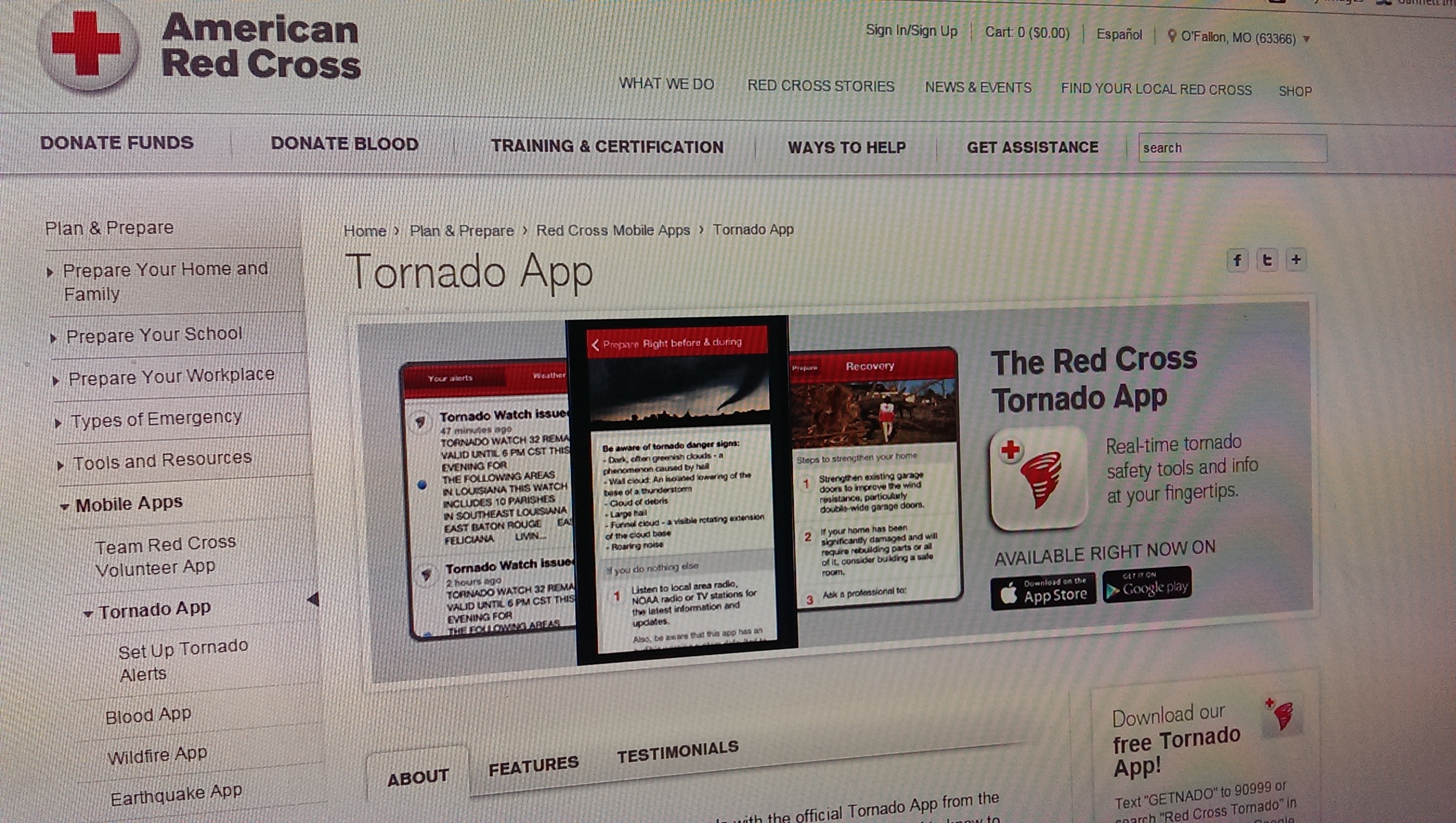LITTLE ROCK, Ark. (Red Cross) –The American Red Cross reminds Arkansans to continue safe practices during this round of winter weather.
'The Red Cross Tornado App has great information that's useful during winter weather,' stated American Red Cross Communications Director, Brigette Williams. 'The best time to familiarize yourself with what do is before you lose power or find yourself stuck on a highway.'
In addition to power outages tips on what to do before, during and after loss of electricity, the Tornado app provides users with links to Arkansas' major utility company's emergency numbers and outage maps.
'We remind users, that as long as cell phones are powered, even if cellular service is lost, the safety information within the app is still accessible," stated Williams.
Ten other safety tips for winter weather are as follows:
1. Stay Informed
Listen regularly to your local weather forecasts. This system has been adjusted several times within the past 24 hours in severity, as well as affected areas. Stay current on how conditions could affect you.
2. Make A Plan
Be prepared for power outages. Check now for what your needs may be in the event of a power outage. Think about non-perishable foods, keeping phones powered (do you have a car charger? Do you have enough gas in the car to warm up?) What is your 'plan B' for any needed medical equipment that is a must have regardless of the length of outages.
3. Only Use Inspected Fireplaces
Do not use fireplaces that have not been recently inspected. Red Cross Responders stay busy during the winter at homes burned by fireplaces and chimneys that have not been inspected. Likewise do not use the stove or ovens to heat your home. Use heating sources only as directed.
4. Use Generators Only As Directed.
Do not bring a generator inside your home, garage or basement. Also, never connect a portable generator to your electrical system. Good idea to have a carbon monoxide detector in your home just in case. Your smoke alarm may have one. Read the directions that came with your generator before using.
5. Be ready in case power outages last more than a day...
...by having a cooler filled with ice to move food from the refrigerator. If temperatures are below freezing, place food outside in a safe container until power is restored-that's colder than the 40 degrees to keep food chilled.
6. Driving is strongly discouraged...
...should Arkansas receive ice from a quarter inch or more. If you must travel, plan to leave before wintery precipitation begins in your area or delay your trip until roads are safe to travel. Check with the Arkansas Department of Transportation for the latest road conditions.
7. Know road conditions along your route...
...before you leave your home or workplace from beginning to end. The same applies to checking with your airline before leaving for the airport on delays here or at connecting airports. Snow and ice storms will affect more than half of the United States.
8. Fill up your gas tank.
Not only does it prevent gas lines from freezing, you're prepared in the event of traffic standstills or detours. If roads are ice covered, driving is strongly discouraged.
9. Have An Emergency Kit Pack emergency supplies for the car...
... even if you're traveling a short distance from one side of town to the other. "There nothing like being stuck on the road for hours because of an accident or needed detour with children and finding yourself without extra diapers, snacks and water," stated Williams. "We have seen Arkansans stuck for hours on Interstates 30, 540 or 40 during weather related accidents.
10. Remember your four legged family members.
If it's too cold or too dangerous for you to be outside, neither should your furry friends. The American Red Cross Pet First Aid app has tips to keep your dog or cat safe during winter weather.
Emergency car kit supplies:
- Blanket
- Needed medications/supplies, i.e. asthma, diabetic needs or medications taken daily
- Snacks—nuts, fruit
- Bottled Water
- Baby food/formula
- Diapers


